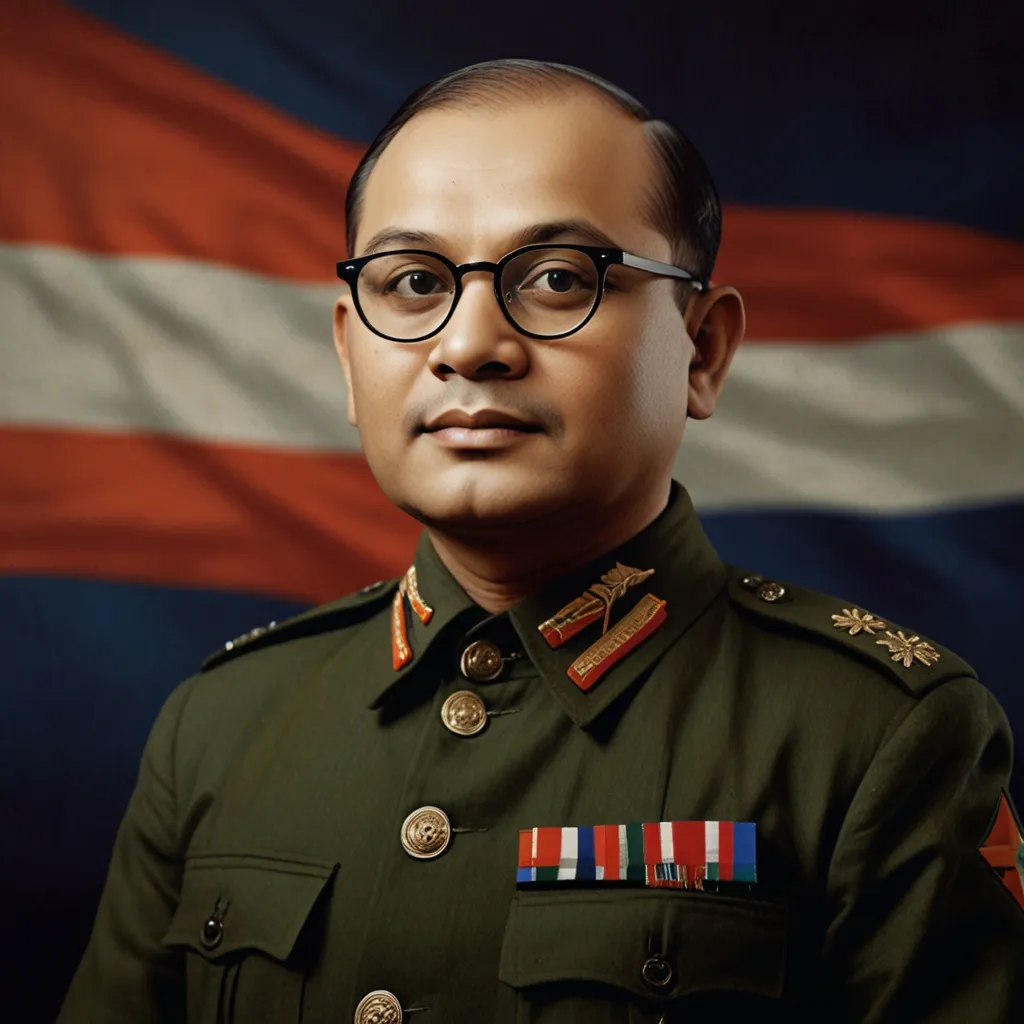Leadership, in its most honest form, is tested when the world seems to spin out of control. Looking back at history, some of the most defining moments for entire nations were shaped by individuals forced to make impossible choices under the brightest spotlight imaginable. These choices didn’t just influence government policy or political fortunes. They set the tone for generations. Let’s explore five such crises—stripped of the usual narratives—and dwell on what really happened when the grip of power came with an unimaginable burden.
“Leadership is not about being in charge. It’s about taking care of those in your charge.” — Simon Sinek
Imagine America in 1861, days after Abraham Lincoln took office. Seven Southern states had already decided they no longer wished to be part of the Union, and a nation’s soul teetered on the edge. Lincoln received news that Fort Sumter, a federal garrison, was running out of supplies in Charleston Harbor—right in the heart of Confederate territory. What would you do? Send supplies and risk war or withdraw and watch the Union fracture? Lincoln’s choice to resupply—knowing it would provoke the start of the Civil War—wasn’t just about military tactics. It was a signal to the world: unity mattered more than compromise, and some principles couldn’t be deferred. America, by standing firm, learned that some crises are resolved not by avoidance but by facing storms head-on.
A little more than a century later, another standoff played out—this time on a global stage between the world’s two nuclear titans. The Cuban Missile Crisis feels clean in hindsight, but at the time, President John F. Kennedy and Soviet leader Nikita Khrushchev were both staring at the abyss. It wasn’t just a question of military posturing; it was about the mental strength to keep dialogue open while appearing resolute. Kennedy didn’t order an immediate airstrike or an invasion. He imposed a naval quarantine and secretly negotiated a missile withdrawal deal, which involved quietly removing US missiles from Turkey. Would you have resisted calls for a show of strength? Kennedy’s approach, blending calculated risk with communication, brought the world back from the edge while shaping how leaders manage nuclear brinkmanship even today.
“Courage is what it takes to stand up and speak; courage is also what it takes to sit down and listen.” — Winston Churchill
During the darkest days of World War II, Britain’s very survival hung by a thread. The Dunkirk evacuation is remembered for the “miracle” that saved thousands, but the heart of that episode was Churchill’s refusal to broker peace with Hitler. He faced advisors who wanted negotiation, the reality of a stranded army, and a public desperate for hope. Instead of negotiation, Churchill ordered the rescue of as many soldiers as possible. His famous speech—“We shall fight on the beaches”—wasn’t just theatre. It reminded Britain that resilience could outlast defeat. This wasn’t merely military strategy. It was psychological warfare, using words as armor, forging unity when cracks appeared everywhere.
How often do we forget that decisions by leaders in ancient eras set precedents for basic human rights? Cyrus the Great, confronting a rebellious Babylon, offered something unheard of in his time: religious freedom. Rather than crushing dissent, he issued an edict—the Cyrus Cylinder—that guaranteed people could worship freely. It wasn’t simply mercy; it was shrewd politics. This act, often overlooked, stabilized his empire by turning potential enemies into loyal subjects. If you were in his place, would you trust goodwill over raw power? Cyrus’s example hints that sometimes, benevolence is the greatest control mechanism.
“Nearly all men can stand adversity, but if you want to test a man’s character, give him power.” — Abraham Lincoln
South Africa in 1993 was a powder keg. The assassination of Chris Hani, a beloved activist, threatened to derail negotiations to end apartheid. Nelson Mandela, not yet president, was thrust into the role of peacemaker. It’s easy to assume that calm prevailed, but the nation was on the brink of civil war. Mandela’s decision to address the nation directly on television wasn’t an act of routine statesmanship. It was a deliberate, personal intervention at a moment when violence felt inevitable. Instead of fanning anger, he called for restraint and unity. That appeal calmed tempers and kept the transition to democracy alive. Would you have trusted the power of words, or tried to assert control by force? Mandela’s moment proves that sometimes, leadership is about stepping into the chaos to cool tempers rather than inflame them.
Leadership during crises is often remembered for broad strokes—the big speeches, the dramatic confrontations, the visible decisions. But if we dig deeper, what stands out is the personal calculus that each leader faces. The rigidity of principle, the flexibility of tactic, the willingness to communicate, and the courage to trust both the public and your adversaries—these elements operate beneath the surface, rarely discussed in history books or documentaries.
Have you considered how the context around each crisis shapes what’s possible? In Lincoln’s America, technology limited the speed of communication, forcing decisions with incomplete information. Kennedy operated in the glare of television, where every move was scrutinized in real time by the global public. Churchill fought with the memory of millions lost just a generation before. Cyrus wielded ancient authority but still recognized the benefit of tolerance. Mandela confronted decades of institutionalized racism, knowing a single misstep could reignite violence.
“The ultimate measure of a man is not where he stands in moments of comfort and convenience, but where he stands at times of challenge and controversy.” — Martin Luther King Jr.
Let’s ask ourselves: How would we have acted? When every option is terrible, and history watches, the smallest choice can echo for centuries. Lesser-known details add more depth. For example, during the missile crisis, American and Soviet leaders used backchannels, including personal letters, to clarify intentions—without these, miscalculation was likely. At Dunkirk, countless civilian boat owners crossed the channel on their own initiative, showing that leadership sometimes means trusting ordinary people to step up.
Lincoln’s decision at Fort Sumter wasn’t just about defending a flag but about confronting the moral question of slavery, something many in his own party hesitated to address. Churchill gambled not just with soldiers’ lives but with public morale, turning impending defeat into a rallying cry for future victories. Cyrus’s approach foreshadowed modern concepts of human rights, centuries before they had a name.
What about the personal costs? Leadership in these moments exacted a heavy price. Kennedy’s hair visibly greyed during his presidency. Churchill’s health suffered from relentless pressure. Lincoln carried the weight of enormous loss, speaking of “the mystic chords of memory” uniting a torn nation. Mandela missed decades with his family, spending years imprisoned before seizing the moment for peace. Even Cyrus, remembered as beloved by many, navigated dangerous plots and rebellions.
Are we honest about how hard these decisions truly are? Hindsight makes everything look neat—yet in the storm of the crisis, uncertainty reigns. Leaders often don’t know if their choices will work until much later, if ever. In these five cases, it was clarity of principle blended with an openness to adjust tactics that made the difference. Firmness doesn’t mean inflexibility. Empathy doesn’t mean weakness. And sometimes, reaching out to those who disagree with you prevents disaster.
“Never let a good crisis go to waste.” — Winston Churchill
Innovation often springs from pressure. Kennedy’s measured use of backchannel diplomacy during the missile crisis later inspired the creation of the “hotline” between Washington and Moscow, designed to prevent miscommunications that could tip the planet into nuclear war. Mandela’s approach to Truth and Reconciliation offered a blueprint for societies fractured by conflict. Churchill’s use of broadcast and rhetoric shaped how modern leaders communicate in emergencies.
Those who faced these tests didn’t emerge unscathed. Their legacies are not solely victories. They bear the scars of choices made under duress, of criticism from those who wished for a different path. In the end, leadership during crisis defines not just a leader’s time in office but the spirit of an age. Do you see echoes of these challenges in today’s world? When we debate the right course in moments of national or global trauma, the lessons from these crises are not relics—they are vital reference points.
So when we talk about leadership, especially during crises that define entire nations, it’s worth separating the myth from the reality. Real leadership is messy. It’s about gut calls, sleepless nights, doubts, and the courage to communicate, even when the room is full of fear. Sometimes it’s about saying “No,” when “Yes” offers an easier path. Sometimes, it’s trusting the power of ordinary people to rise in extraordinary times.
As you reflect on these stories, ask yourself: In moments of crisis—personal, professional, or national—what would you do? Which values would you anchor to, and where would you allow flexibility? The true legacy of these leaders is not just the nations they saved or shaped, but the enduring lessons they offer for all who find themselves called to choose when it matters most.






